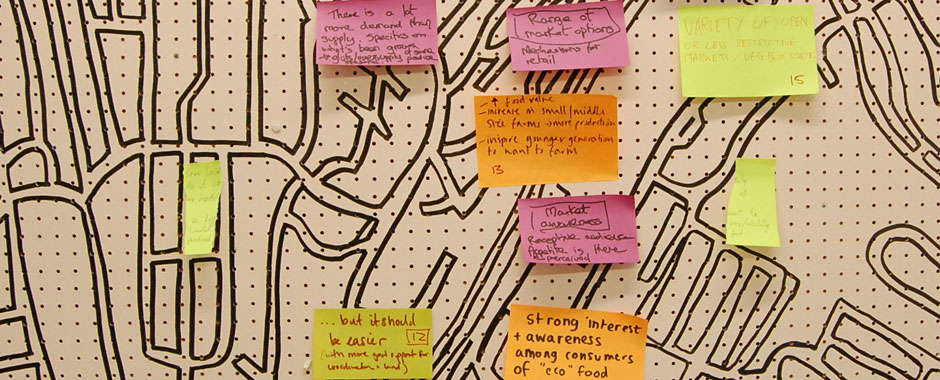The PATHWAYS Network aims to research and intervene in six sites around the world, using innovative methods. These are sites which face socio-ecological challenges – problems in which people and ecosystems are entangled.
These challenges call for methods that are transformative, can overcome lock-in and plant seeds of change. Technical solutions are not enough – social innovation is needed.
In each of our six sites, the PATHWAYS Network convenes ‘Transformation Labs’ (T-labs). These are not single events, but processes which include research, interviews and workshops which can combine a number of methods. The T-labs are carefully designed to co-produce change with different kinds of people who have the desire and the potential agency to make it happen.
Transformation Labs
Read our guide to Transformation Labs, published in October 2018.
T-Labs: A Practical Guide
Using Transformation Labs (T-Labs) for innovation in social-ecological systems
Pathways Network, October 2018
Video: Laura Pereira on T-Labs
[embedyt] https://www.youtube.com/watch?v=_xbwTkUKNl4[/embedyt]Blog posts
Blog: The Transformation Labs (T-labs) approach to change
An introductory article by Per Olsson (Stockholm Resilience Centre) on what T-labs are, why they are needed and how they are being used in the PATHWAYS Network project.
Blog: Coming to terms with messiness – what is a Transformation Lab?
Reflections by Laura Pereira (University of Stellenbosch/SRC) on a completed Transformation Lab from the GRAID research project in South Africa.
For blog posts and other materials from T-labs in each country, see the Case Studies.
Methods vignettes

Descriptions of methods used or adapted as part of the PATHWAYS Network project.
Evaluation H
A method adapted for use in the Brighton & Hove (UK) T-lab
Agency Network Analysis
A method developed by the North America hub for use in Xochimilco, Mexico City (the North America T-lab)
Participatory Impact Pathways Analysis (PIPA)
A method for eliciting theories of change, adapted by the STEPS Centre for its projects, used in planning the case studies
The Pathways Approach
The project’s methodology is also strongly informed by the STEPS Centre’s Pathways Approach. This is not a single method but an approach to research and action which aims to open up alternative social, technological and environmental pathways to sustainability that favour the rights, interests and values of marginalised and excluded people.
For more information and a guide to methods, see the STEPS Centre’s Methods resources.
For more detail on overall methodological background and approaches used by the PATHWAYS Network, see also the Publications page.